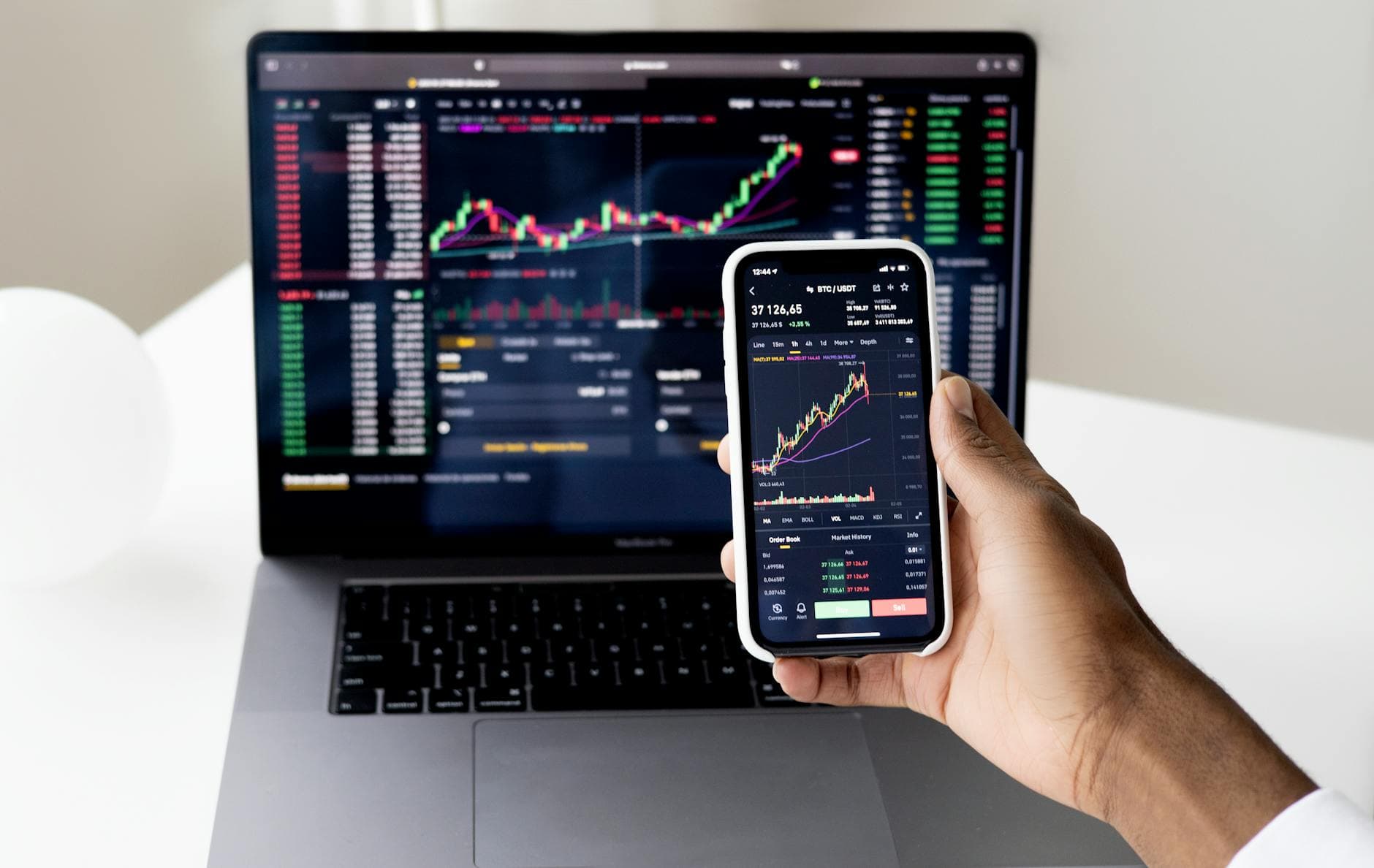Psychological Barriers in Trading: How Pre-Built Strategies Help Beginners Overcome Emotional Decision-Making
When most new traders enter the markets, they focus almost exclusively on learning technical analysis, chart patterns, and entry signals. Yet statistics consistently show that psychology—not technical knowledge—is the primary reason most traders fail. According to various studies, psychological and emotional factors account for approximately 80% of trading failures.

Why Psychology Is Your Biggest Trading Obstacle
When most new traders enter the markets, they focus almost exclusively on learning technical analysis, chart patterns, and entry signals. Yet statistics consistently show that psychology—not technical knowledge—is the primary reason most traders fail. According to various studies, psychological and emotional factors account for approximately 80% of trading failures.
Even with a theoretically profitable strategy, human emotions can derail your trading plan in seconds:
- Fear keeps you from entering trades at optimal points
- Greed convinces you to hold positions too long
- Revenge trading after losses compounds negative results
- Overconfidence leads to oversized positions and excessive risk
As a beginner trader, these psychological barriers are particularly challenging because you haven't yet developed the mental discipline that comes with years of market experience.
The Emotional Cycle of Trading
Most retail traders follow a predictable emotional cycle:
- Excitement - "This strategy looks amazing! I'm going to make so much money!"
- Hope - "My first few trades are working! I knew I could do this!"
- Anxiety - "I've had a few losses now. Maybe I should change something?"
- Fear - "I'm down 15% already. What if I lose everything?"
- Desperation - "I need to make back my losses quickly with bigger trades!"
- Panic - "Nothing is working! I need to try something completely different!"
This cycle repeats until either the trader gives up or learns to overcome these emotional responses. The question is: how can beginners short-circuit this destructive pattern before it drains their accounts?
How Pre-Built Trading Strategies Address Psychological Pitfalls
Pre-built trading strategies from TradingView's marketplace offer beginner traders a powerful solution to psychological trading barriers. Here's how they help:
1. Eliminating Subjective Decision-Making
When you rely on your judgment to interpret charts, emotions inevitably influence your decisions. Pre-built strategies use objective criteria to generate signals, removing the emotional component from the equation.
"The biggest benefit I found from using a pre-built strategy was consistency. I no longer questioned myself on every trade," shares Michael, a retail trader who switched to systematic trading after six months of inconsistent results.
2. Preventing Impulsive Behavior
Impulse trades are the nemesis of trading success. Whether it's FOMO (fear of missing out) driving you to chase entries or panic causing premature exits, impulsive actions rarely align with sound trading principles.
Pre-built strategies with clear entry and exit rules prevent impulsive behavior by providing a structured framework. When the strategy says trade, you trade. When it doesn't, you wait. This simple discipline eliminates countless emotional errors.
3. Building Confidence Through Backtesting
One of the most powerful psychological benefits of using TradingView's pre-built strategies is the ability to see historical performance. Quality strategies in the marketplace come with comprehensive backtesting results, showing how they've performed across different market conditions.
This transparency builds confidence—not the dangerous overconfidence of a new trader on a lucky streak, but evidence-based confidence in a system with a proven edge. When you understand the long-term expectancy of your strategy, temporary losses become easier to accept as part of the normal variance.
4. Providing Emotional Distance
Automated strategies create psychological distance between you and your trading decisions. Rather than feeling personally responsible for each trade, you're simply following a system. This subtle shift reduces the emotional impact of both wins and losses.
As one TradingView strategy user put it: "I no longer feel like I'm personally failing when a trade doesn't work out. It's just the strategy experiencing its normal win/loss ratio."
Selecting the Right Pre-Built Strategy for Psychological Compatibility
Not all trading strategies align with every trader's psychological profile. When browsing the TradingView Strategy Marketplace, consider these factors to find a psychological match:
Trade Frequency
Some traders find peace of mind with frequent, smaller trades, while others prefer fewer, higher-conviction positions:
- High-frequency strategies (multiple trades per day or week) may suit traders who need regular feedback and engagement
- Low-frequency strategies (a few trades per month) might better serve those who become anxious watching positions constantly
Drawdown Tolerance
Be honest about your emotional capacity to handle drawdowns (periods of account decline):
- Lower max drawdown strategies (typically 5-15%) offer more psychological comfort but may generate lower overall returns
- Higher drawdown strategies (20%+) can potentially yield greater returns but require exceptional emotional discipline during inevitable rough patches
Review the strategy's historical drawdown metrics carefully before purchasing. If a 25% drawdown would cause you extreme anxiety, don't choose a strategy with that profile, regardless of its total return figures.
Complexity vs. Simplicity
Some traders find comfort in complexity, believing more indicators and conditions create a safer strategy. Others prefer simplicity for its clarity and ease of understanding:
- Complex strategies with multiple indicators might appeal to analytically-minded traders
- Simple strategies with clear rules might better serve those who value transparency and straightforwardness
The best approach is to select a strategy whose logic you can understand and believe in, as this will help you maintain confidence during challenging periods.
Implementing Pre-Built Strategies: A Psychological Framework
To maximize the psychological benefits of pre-built strategies, follow this implementation framework:
1. Paper Trade First
Even with proven strategies, begin with paper trading. This isn't just about testing the strategy—it's about testing your emotional response to its signals. Can you follow it consistently? Do you feel excessive anxiety when it enters drawdown periods?
2. Start Small
When transitioning to live trading, begin with smaller position sizes than your maximum risk tolerance. This creates psychological safety while you adjust to following the strategy with real capital.
3. Keep a Trading Journal
Document not just your trades but your emotional responses. For example:
"Strategy generated a buy signal for BTC today. I felt hesitant to take it because of yesterday's market drop but followed the system anyway. Need to watch this tendency to doubt signals after market-wide events."
This self-awareness accelerates your psychological development as a trader.
4. Create a System Evaluation Schedule
Decide in advance when you'll evaluate the strategy's performance—perhaps monthly or quarterly. This prevents impulsive strategy-hopping after a few losing trades, one of the most common psychological mistakes beginners make.
Beyond the Strategy: Complementary Psychological Techniques
While pre-built strategies significantly reduce emotional trading errors, complement them with these psychological techniques:
Meditation and Mindfulness
Even brief daily meditation can improve your ability to recognize and manage emotional impulses before they affect your trading decisions. Many successful traders begin each day with a 10-minute mindfulness practice.
Pre-Trading Checklists
Create a simple pre-trading checklist that includes a psychological readiness assessment:
- Have I reviewed my strategy's rules today?
- Am I in a calm, neutral emotional state?
- Have I eliminated distractions from my trading environment?
- Am I prepared to accept the outcome of today's signals, whether positive or negative?
This ritual creates a professional mindset before engaging with markets.
Finding Your Strategy Match in the TradingView Marketplace
The TradingView Strategy Marketplace offers a diverse range of pre-built strategies suitable for different psychological profiles and trading preferences. When browsing options, pay particular attention to:
- Clear explanations of the strategy's logic (understanding builds trust)
- Comprehensive backtest results across multiple market conditions
- Drawdown statistics and recovery periods
- Creator responsiveness to questions (ongoing support helps during challenging periods)
Most importantly, look for strategies that include educational resources explaining the reasoning behind each component. This transparency helps you build confidence in the system and develops your market understanding over time.
Conclusion: Trading Success Begins in the Mind
While markets may seem driven by technical factors, your trading results are primarily determined by psychological ones. By leveraging pre-built strategies from the TradingView marketplace, beginner traders can bypass many of the emotional pitfalls that typically derail trading accounts in their first year.
These strategies provide not just technical edge but psychological structure—perhaps the more valuable benefit for long-term success. As you grow as a trader, you'll develop your own psychological resilience, but using proven systems early in your journey creates a foundation of disciplined, systematic trading habits that will serve you throughout your career.
Remember that trading is a marathon, not a sprint. The goal isn't just profitability but developing a sustainable, emotionally balanced approach to markets. Pre-built strategies offer beginner traders the perfect vehicle to achieve both objectives simultaneously.


